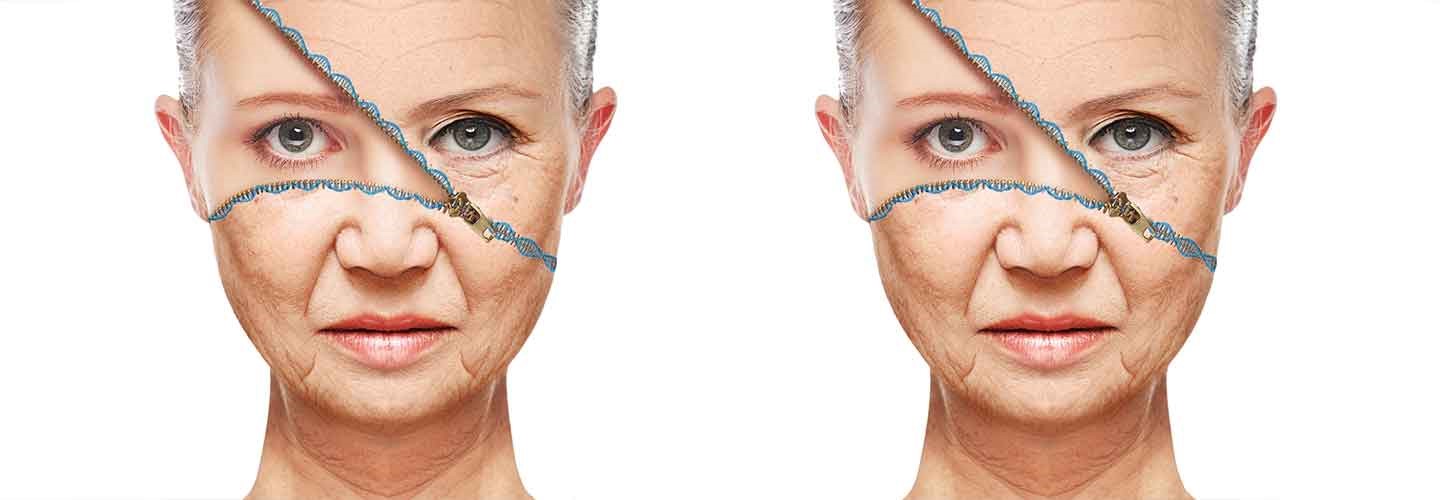The DNA of Emotional Health – Part 8 Inflammaging – ”Unzip” Your DNA to Prevent 32 Trillion Cells from Screaming for Relief
- Home
- Blog

“Enlightenment is making every cell, gene and DNA as the radiator of peace and harmony.”
– Dr. Amit Ray
Reader, with the Fourth of July behind us, and Labor Day weeks away, we now find ourselves in what I like to call “Deep Summer”: the hot, humid days where the lucky ones on their days off go in search of a watering hole to dive into for quick relief; the long, lingering nights sitting on your porch, watching the fireflies and chatting with passersby; the smell of fresh-cut grass from the lawnmower; the fresh blast of the air conditioner as you walk indoors. This heat asks us not to think too hard, but to be light and spontaneous—to grasp deep revelation through the humor of a good story, rather than in the density of an academic treatise. So, reader, let me tell you a story—or a fable, rather—of a son of a friend of a friend. This young man started getting tattoos while he was still in high school. Under his parent’s supervision, he inked a number of designs along his limbs and torso. But when he turned eighteen, he ventured off on his own, for his very first unsupervised tattoo. He went to a new artist on a different side of town and asked for something seemingly simple: “NO REGRETS” tattooed across his shoulder blades in big, bold lettering. Things were going swimmingly, and an hour later, the tattoo artist proudly displayed his work. There was just one problem: the tattoo was missing a letter. Sprawled across his back, the tattoo read: “NO REGETS”. Suffice to say, the tattoo took on a slightly different meaning than intended!
I love this story for the universal truth it reveals: we are told to live without regrets, and yet regret is an unavoidable, fundamental part of life. And the reason for that is simple: As true as the scientific rule that every action has a reaction, our every action has a consequence—and sometimes, those consequences are not what we intended. There is nothing we can do in this world to avoid this truth—but the worst thing we could do for ourselves is to ignore its existence. Instead, we can empower ourselves by understanding what our actions might lead to, and which consequences we’d do well to avoid.
Inflammaging—Chronic Inflammation Damages and Destroys Cells and Hastens the Aging Process
One of the most common ways in which we forget (or deny) that our actions have consequences is in the process of aging… or for some, “inflammaging”. Many of us persist under the myth that the rate at which we age is outside of our control. This couldn’t be further from the truth. The actions we take now will bring about permanent consequences for our mental and physical health in our later years. The more we know about the lifestyle choices that accelerate or prevent the effects of chronic inflammation on the 32 trillion cells inside our bodies, the more we can prevent this cell-aging process from taking its toll on our health and well-being. It is with this in mind that I want to share with you Debbie’s story, and define for you a term that, once understood, may well add years to your life. These Deep Summer months are truly one of life’s great pleasures—keep reading, and you may just find yourself enjoying many more to come!
Debbie’s Story: Live Fast, Age Faster?
When Debbie* first came to see me, I immediately knew she had some stories to tell—and tell, she did. She described her life like a roller-coaster ride: equal parts exciting and terrifying. When she was young, she’d been a band groupie and a “road wife” for several famous rock stars. She’d been married and divorced three times and had had relations with over 100 men. When she wasn’t on the road, her career had ranged from high-fashion retailers to growing marijuana on a farm. There’d been many shining moments, but many difficult ones too. Now, it seemed her hard-and-fast lifestyle had finally caught up to her. Despite being in her late fifties, she had a number of chronic diseases more characteristic of someone in poor health in their eighties. These included bipolar depression, lupus, colitis, rheumatoid arthritis, obesity, diabetes, microvascular disease of the brain, and mild cognitive impairment. She was not aging well—and if this is where she was in her fifties, she had no idea what was in store for her in the years ahead.
But what, exactly, is the link between a roller-coaster lifestyle and these symptoms of someone in poor health with accelerated aging? I had an answer, and it deeply concerned me. Chronic inflammation was the single thread that wove through each of Debbie’s conditions. Debbie wasn’t just aging—she was inflammaging.
If you recall from my prior blogs, acute inflammation is a positive, natural process in our body. When it’s working as it should, inflammation helps our body restore its sense of homeostasis by fighting off harmful antigens, like a virus or bacteria. However, certain lifestyle factors can push our bodies into a state of chronic inflammation. Our body’s inflammatory response upregulates our glial cells, our “fighter” cells, which then take nutrients from surrounding brain cells (neurons) to give them energy to help them fight efficiently. It’s a fair setup—the glial cells fight the war, and the neurons are saved, with their food sources returning to normal in no time. Chronic inflammation, however, means that those glial cells continually sap nutrients from neurons that desperately need them in order to thrive, produce enough energy to power their functions, eliminate toxic waste products, connect with other neurons to facilitate new learning, and fight off the oxidative stress that also damages them. Not only does inflammaging negatively affect mood and behavior, it begins to damage cognition and is a risk factor for many of the most frightening chronic diseases such as cancer, stroke, heart attacks, and autoimmune diseases.
Debbie’s inflammaging was the result of a number of lifestyle choices that, over time, are incredibly hard on our bodies and minds, regardless of our personal genome: morbid obesity, diabetes, a high intake of carbohydrates, and a lack of physical activity. Worried that Debbie’s condition may lead to a worse fate still—Alzheimer’s Disease—I suggested we take immediate action to help counteract the inflammaging process. Through personalized, precision psychiatry we would create a roadmap for recovery by analyzing her genes, and determining the best way to “unzip her DNA” (unwind selective segments of the double helix) to promote gene expression that would improve Debbie’s mental and physical health.
Unzipping Debbie’s Mental Health DNA with Medications
In addition to her chronic health concerns, Debbie was seriously depressed, with rapid mood cycling, irritability, and anger outbursts. We had to prioritize our focus toward mood stabilization at first; and would later begin to address all of her chronic health conditions would certainly be worsening her underlying mood disorder. I immediately ordered a Genecept Assay from Genomind and we swabbed her cheek. I also ordered blood studies to assess for inflammatory biomarkers, vitamin deficiencies, Lyme Disease, HIV, HSV 1 and 2, and syphilis; and began to coordinate care with her internist.
Her genetic test revealed variants in MTHFR, BDNF, CACNA1C, ANK3, COMT Met/Met, and 5HT2C. We first began treatment with Rexulti and methylfolate, which alleviated some of her depression and mood swings. We then added lamotrigine to address her CACNA1C and ANK3 variants, which provided some additional relief in the form of mood stabilization. Yet she was still suffering from some milder rapid mood cycling, so we added Memantine which also addressed her CACNA1C variant. She was on the mend, and the next step was to address her “Orchid Gene,” COMT Met/Met by adding n-acetylcysteine and having her move to a highly nurturing assisted living center.
Unzipping Debbie’s Brain Health DNA with Supplements and Lifestyle Changes
To address genes that might be affecting her physical health and Inflammaging we performed a Mindful DNA Assay. Not surprisingly, Debbie had multiple genetic variations associated with inflammation: TREM2 and CD33 associated with brain inflammation; FUT2 associated with gut inflammation; and IL6 and CRP associated with inflammatory proteins in the blood. She readily agreed to take Vitamin D, Omega 3, and probiotics.
Candidly, the prescription medication and supplements were the easy part of caring for Debbie. She could passively just “take what the doctor ordered.” The much more challenging aspect had to do with having her alter her lifestyle to reduce the damaging effects of inflammaging. Her health was clearly deteriorating as each of her chronic health conditions were worsening. Keeping in mind the Biopsychosocial Model, which states that our environment, psychology, and biology all play a role in our mental and physical health outcomes, I looked to non-prescription solutions rooted in her social environment to help Debbie get better. I engaged her loving children and devoted internist to support Debbie in a sequential series of interventions: a private, medically supervised weight loss program; Overeaters Anonymous; an anti-inflammatory diet supervised by a very talented, warm nutritionist; a diabetes patient support group through a local hospital; a daily exercise class at her assisted living center. She “sabotaged” these interventions one-by-one, despite all of the supportive encouragement that she was receiving from the sidelines. Desperate to try to turn around her ever-more-rapid physical deterioration, I spoke with her about how the 32 trillion cells in her body were screaming out for relief, and how if we couldn’t arrest the inflammaging process each of her chronic diseases would worsen to the point where she would become bedridden. Nothing seemed to work, and I thought Debbie was doomed.
Another Surprise Twist in a Rollercoaster Life: How Love Motivated Debbie to Act
After giving up almost all hope that Debbie could counteract the negative impacts of inflammaging, a miracle happened! She met a man, a new resident in her building, who was a widower, and they struck up a friendship. The friendship developed into deep affection. Affection became romantic love. And then one day she walked in and told me that the two of them had made a commitment to one another and that together they had embarked upon a strict diet and exercise program (her boyfriend also suffered from inflammaging)! They had decided that their love for one another was too precious to lose, and that each would get healthier for the other out of that love.
Reader: we all have regrets—and we all act in ways that have negative consequences down the line. Don’t let inflammaging catch you off guard. Now that Debbie understands how her actions can lead to negative health outcomes, she’s finally found a motivation to change. Fingers crossed!
.png?width=144&height=144&name=Untitled%20design%20(34).png)



